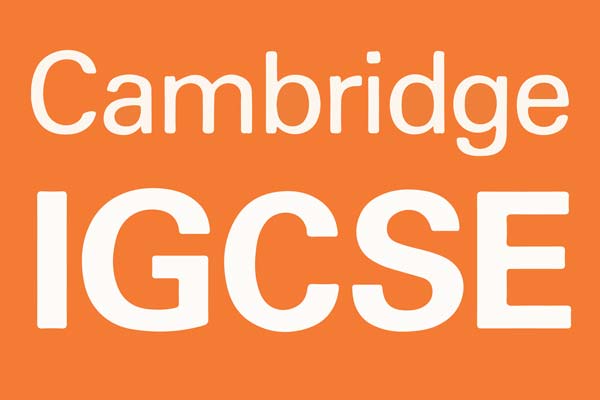IGCSE Unlocked: Your Global Passport to Academic Achievement
The IGCSE is an internationally acknowledged credential on par with the UK’s GCSE qualification.
IGCSE, developed by Cambridge Assessment International Education, is an English language-based secondary qualification that prepares students for further academic and vocational study. It is designed for students aged 14 to 16 and offers over 70 subjects.
IGCSE offers a notable advantage in its flexibility. It empowers students to select from diverse subjects and customize their studies according to their interests and future career goals.
The program also offers different difficulty levels, making it suitable for students of different abilities. Additionally, IGCSE assessments are held twice a year, allowing students to retake exams and improve their grades.
The IGCSE qualification holds global recognition from universities, employers, and regulatory bodies, enhancing its value for students aspiring to further education or immediate entry into the workforce post-studies.
This recognition extends across multiple countries, such as the UK, USA, Canada, and Australia, opening abundant avenues for IGCSE graduates at home and abroad.
Benefits of IGCSE
IGCSE offers students several benefits, making it a popular choice among parents and students.
Holistic Education and Critical Thinking
IGCSE offers students a comprehensive education encompassing various subjects such as languages, sciences, and humanities. This diverse curriculum fosters a holistic grasp of the world.
Additionally, IGCSE promotes critical and logical thinking, fostering problem-solving, investigation, and inference skills. These capabilities are vital for success in further education and professional settings.
Smooth Transition to Higher Education
IGCSE offers a notable advantage: a smooth progression to higher education. With global university recognition, students passing IGCSE exams can secure admission in various countries, including the UK and USA. The curriculum’s rigor equips students with university demands, fostering essential skills and knowledge for success.
Cultural Awareness
IGCSE is an international curriculum that is recognized in many countries worldwide. IGCSE students gain a broad understanding of different cultures and societies.
🌟 Hey Students! 🚀 Ready for the ultimate experience? Join us on Studentsinside.com's Facebook, YouTube, WhatsApp, and LinkedIn. Click now for tips, fun, and success vibes! 🌈✨ #StudentLife #JoinUs
They learn about the customs, traditions, and beliefs of people from other parts of the world.
In today’s globalized landscape, having cultural awareness is crucial due to the collaboration of individuals from diverse cultures and upbringings.
Through IGCSE studies, students foster an appreciation for diversity and gain the ability to cooperate with those from varying backgrounds effectively.
IGCSE Curriculum
The Cambridge Assessment International Education provides the IGCSE curriculum, a versatile and all-encompassing program. Tailored to diverse learners, including non-native English speakers, it ensures inclusivity for varying abilities.
At the core of the IGCSE curriculum are three subjects: Mathematics, English, and Sciences. These subjects provide a strong foundation for further studies and are compulsory for all learners.
The curriculum also offers a wide range of elective subjects such as Humanities, Languages, and Creative Arts, allowing learners to tailor their studies to their interests and strengths.
One of the strengths of the IGCSE curriculum is its flexibility. Schools can choose from over 70 subjects to build a program that meets the specific needs of their learners. The curriculum is consistently refreshed and expanded to maintain relevance and alignment with evolving requirements.
The IGCSE curriculum emphasizes cross-curricular perspectives, promoting connections between subjects and the practical application of skills. This cultivates critical thinking, preparing students for higher education and careers.
Beyond core and elective subjects, IGCSE includes components like Global Perspectives, Physical Education, and Work-Related Learning, fostering teamwork, communication, and problem-solving skills.
Assessment Methods and Preparation
The culmination of the Cambridge IGCSE course involves a comprehensive assessment comprising written and oral exams, coursework, and practical evaluations.
This diverse range of assessment tools accommodates students, especially those whose primary language isn’t English, allowing them to showcase their learning effectively. The assessment strategies are thoughtfully crafted to gauge students’ proficiency and aptitude through various means.
Continuous assessment is an essential part of the IGCSE curriculum. This type of assessment involves regular evaluation of the student’s progress throughout the course. Teachers use various methods such as quizzes, class participation, and homework assignments to evaluate students’ understanding of the subject matter.
Written exams are an essential part of the IGCSE assessment. These exams test the student’s knowledge and understanding of the subject matter.
The exam papers assess students’ capacity to apply knowledge in practical scenarios. They should showcase their comprehension of the subject by providing written answers.
IGCSE assessments include practical evaluations that gauge students’ capacity to apply theoretical understanding in practical scenarios. These evaluations entail conducting experiments, gathering data, and interpreting outcomes, thus verifying the student’s hands-on competencies.
Study strategies such as note-taking, revision, and guidance are essential for students preparing for the IGCSE exams. Effective note-taking helps students to organize information and retain it better.
Revisiting class content and working through past exam papers constitutes a revision. Teachers and tutors offer guidance to pinpoint strengths, weaknesses, and areas for enhancement, enabling focused improvement.
Registration, Exam Process, and Scoring
To register for the International General Certificate of Secondary Education (IGCSE) exam, students must first choose a registered Cambridge Assessment International Education center to take the exam. The center will provide the necessary information regarding fees, timelines, and registration rules.
Students must register for the exams through their chosen center, which will then submit the entries to Cambridge Assessment International Education.
The process involves two yearly exam series, one in June and the other in November. Students can take the exams in either series or both, depending on their needs.
The exams are paper-based and consist of written and practical components, depending on the subject. The exam duration varies between subjects, with most exams lasting 1.5 to 2.5 hours.
The IGCSE exam grading system employs an A* to G scale, with A* as the top grade and G as the lowest. Cambridge Assessment International Education examiners evaluate the exams using diverse assessment techniques to ascertain the ultimate grade.
The grading boundaries for each subject are set by Cambridge Assessment International Education and are based on the difficulty of the exam.
After the exams are marked, students will receive a statement of results showing their grades for each subject. Certificates are issued to students who have achieved a grade of C or above in at least five subjects, including English and Mathematics.
The certificates hold global recognition and are suitable for pursuing additional education or job prospects.
Regarding fees, registering for IGCSE exams varies depending on the center and the number of subjects taken. Students should consult their chosen center for more information on fees and payment methods.
It is important to note that there are only refunds for exam fees once registration has been completed if the exam board rejects the entry for some reason.s.
IGCSE vs. Other Curricula
The IGCSE curriculum is a popular international qualification for 14-16-year-old students. While there are similarities between the IGCSE and other curricula, there are also some key differences.
Compared to national curricula, the IGCSE curriculum offers a broader range of subjects and a more flexible approach to learning. For example, in the UK, students typically study for GCSEs in a set number of subjects, but with IGCSE, students can choose from a wider range of subjects.
Additionally, the IGCSE curriculum is recognized by universities and employers worldwide, making it a valuable qualification for students who plan to study or work internationally.
Compared to other international curricula, such as the International Baccalaureate (IB), the IGCSE curriculum focuses more on individual subjects than a broad range of subjects.
The IB curriculum includes a wider range of subjects and requires students to complete a research project and a course on the theory of knowledge. In contrast, the IGCSE curriculum focuses on preparing students for specific subjects and exams.
Another difference between the IGCSE and other curricula is the grading system. The IGCSE uses a letter grading system, with grades ranging from A* to G. Other curricula, such as the IB, use a points-based system, where students earn points based on their performance in each subject.
Practical Components of IGCSE
The IGCSE curriculum fosters a comprehensive skill set in students across diverse subjects. Its integral practical components are designed to cultivate applicable real-life skills.
Laboratory Work
Laboratory work is a crucial component of the IGCSE science curriculum. It enables students to put theoretical knowledge into practice.
Through laboratory work, students acquire the skills of experiment conduct, data collection, and result analysis. They also learn to utilize laboratory equipment and techniques vital for their prospective scientific careers.
Art Projects
Art projects are an essential component of the IGCSE Art and Design curriculum. They allow students to develop their creative skills and express themselves through art. Students learn various techniques such as drawing, painting, and sculpture and are encouraged to explore their creativity.
Language Orals
Language orals are an essential component of the IGCSE language curriculum. They provide students with an opportunity to develop their speaking and listening skills. Students are required to speak in the target language and are assessed on their pronunciation, fluency, and comprehension.
Developing Practical Skills Across Subjects
The IGCSE program strives to enhance students’ practical skills in diverse subjects. It promotes applying theoretical understanding to real-life scenarios, fostering proficiencies like problem-solving, critical thinking, and communication. Such skills are vital for both future professional endeavors and personal growth.
Study Resources and Support
Preparing for the IGCSE exams can be challenging for students, but many resources and support are available to help them succeed. This section will cover some recommended study resources and support for IGCSE students.
Recommended Textbooks
Many textbooks are available for IGCSE students, but choosing the ones that align with the syllabus and provide comprehensive coverage of the topics is crucial. Some of the recommended textbooks for IGCSE students include:
- Cambridge IGCSE™ International Mathematics by Cambridge University Press
- Cambridge IGCSE™ and O Level Global Perspectives 2nd Edition by Cambridge University Press
- Cambridge IGCSE™ Physics Coursebook by David Sang, Graham Jones, and Gurinder Chadha
Online Platforms and Apps
Online platforms and apps can provide additional resources and support to IGCSE students. Some of the recommended online platforms and apps for IGCSE students include:
- Resource Plus by Cambridge International: Provides teaching resources and support for IGCSE teachers and students
- Tutopiya: Offers online tutoring services for IGCSE students in various subjects
- Khan Academy: Provides free online courses and tutorials in different subjects, including math, science, and history
Access Arrangements
Students with disabilities or special needs may require access arrangements to help them take the IGCSE exams. Access arrangements include extra time, a separate room, or assistive technology. Students can speak to their school or exam center to arrange access arrangements.
Counseling and Peer Collaborations
Preparing for exams can be stressful, and students may benefit from counseling or peer collaborations. Schools and exam centers may offer counseling services, and students can collaborate with their peers to study together and support each other.
Parental Involvement in IGCSE Success
Parental engagement significantly influences a student’s academic achievements, including performance in IGCSE exams.
Research indicates that parents actively involved in their child’s education can significantly impact their child’s academic achievement.
Encouragement is one-way parents can support their child’s academic success. Motivation can come in positive reinforcement, such as praising their child’s efforts and achievements.
Parents can motivate their children to engage actively in learning by establishing objectives and creating chances for self-directed study.
Progress monitoring is another important aspect of parental involvement. Parents can monitor their child’s progress by regularly reviewing their exam results and coursework and discussing them with their child. This helps parents identify areas where their child may need additional support or resources.
Communication is also vital to parental involvement. Parents should maintain open lines of communication with their child’s teachers and school administrators to stay informed about their child’s progress and any challenges they may face.
This can help parents provide targeted support to their children and work collaboratively with teachers to address any issues.
Parents can contribute to their child’s academic success by creating a supportive study environment. This can involve providing quiet study space, minimizing distractions, and ensuring that their child has access to the necessary materials and resources.
Updates, Changes, and Global Recognition
Cambridge IGCSE is a popular international curriculum for students aged 14 to 16. The syllabuses are regularly updated to meet the needs of schools and students, ensuring they stay relevant and up-to-date.
The updates to the syllabuses are designed to make them easier for teachers and students to understand while keeping the familiar features that teachers and schools value.
Stay Updated on Curriculum Revisions and Exam Updates
Cambridge Assessment International Education provides regular updates on curriculum revisions and exam updates.
Schools and students can stay up-to-date with the latest changes by visiting the official website of Cambridge Assessment International Education.
The website provides detailed information on the syllabuses and exam format changes. Schools and students can also contact the Cambridge Assessment International Education support team for queries or concerns.
IGCSE’s Recognition in Different Educational Systems
Universities and educational systems around the world recognize Cambridge IGCSE. UK, US, Canadian, and Australian universities widely accept the qualification.
Many other countries, including Singapore, Malaysia, and India, also recognize the IGCSE qualification. Recognizing the IGCSE qualification by universities and educational systems worldwide makes it an ideal choice for students pursuing higher education abroad.
University Admissions and Beyond
After completing their IGCSEs, students often wonder about their options for further education. One popular path is to continue their studies at a university.
IGCSEs are widely acknowledged by top universities, educational institutions, and employers worldwide as proof of academic accomplishment and a global pathway to advancement and achievement.
IGCSE grades can be critical as they determine subsequent high school entry, which can be highly competitive. However, some debate that secondary school IGCSE grades are less important.
Universities evaluate several aspects when determining student admissions, encompassing IGCSE scores, personal statements, extracurricular involvement, and performance in additional academic qualifications.
IGCSEs can serve as a pathway to international universities. Many universities in Europe, Asia, and the United States recognize IGCSEs and accept them as a qualification for entry. In addition, some universities offer scholarships specifically for IGCSE students to encourage them to apply.
After completing their IGCSEs, students can also explore various opportunities beyond university. They can consider vocational training, apprenticeships, or work experience. These options can provide valuable skills and expertise to help students stand out in the job market.
Ethical Academic Practices
Upholding integrity in coursework and exams is fundamental to ethical academic practices. Cambridge IGCSE™ emphasizes the importance of academic integrity and encourages students to conduct themselves honestly and at all times.
Students are expected to submit their original work and acknowledge any sources used in their research. Cambridge IGCSE™ provides guidelines on how to avoid plagiarism and cheating, and students are encouraged to familiarize themselves with these guidelines.
Maintaining academic integrity is contingent upon refraining from plagiarism and cheating. Plagiarism involves using someone else’s work without proper acknowledgment, while cheating entails unethically gaining an edge, such as replicating others’ exam answers or coursework.
Both plagiarism and cheating are serious offenses that can result in disciplinary action, including the invalidation of exam results.
To avoid plagiarism and cheating, students should ensure that all work submitted is their original work.
They should also correctly cite any sources used in their research, including quotes, paraphrases, and ideas. Cambridge IGCSE™ provides guidelines on properly citing sources, and students are encouraged to follow these guidelines.
In addition to avoiding plagiarism and cheating, students should always uphold ethical academic practices by conducting themselves with honesty and integrity. This includes being truthful in all academic matters, such as reporting any suspected instances of plagiarism or cheating.
Students must honor the intellectual property of others, refraining from using copyrighted materials without proper permission.








